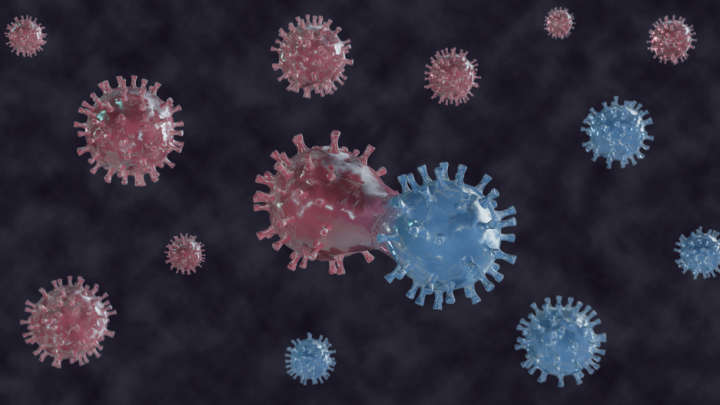A preliminary study reports that a significant mutation in the SARS-CoV-2 pathogen may have been detected for the first time. Authors of the study, published on the website bioRxiv and not yet peer-reviewed, posit that if the mutations continue to occur, it could impact efforts to find a vaccine, but they told Newsweek they think this is unlikely due to the genome’s relatively stable nature compared to the SARS coronavirus.
The study looked at the genetic makeup of 106 samples of the Covid-19 pathogen from a database compiling information taken from infections across the globe. They then compared the information on the Covid-19 coronavirus with 39 genome sequences of the SARS coronavirus. SARS causes severe acute respiratory syndrome, which saw an outbreak in 2002.
Their investigations revealed that, despite having had a smaller impact on humanity, SARS actually contained higher genetic diversity with a greater rate of mutation compared to the Covid-19 pathogen, which was found to have a comparatively stable genome. The “first significant” mutation they did encounter was from a sample collected in India on January 27, 2020, which showed an alteration to the genome that appeared to make the pathogen less able to bind to a receptor on human cells called ACE2.
“A relatively stable genome of SARS-CoV-2 is a good indication for the epidemic control, as less mutation raises the hope of the rapid development of [a valid] vaccine and antiviral drugs,” wrote the authors.
The seasonal influenza (flu) has long been a headache for epidemiologists as a high mutation rate means that vaccinations become invalid from one flu season to the next (though there is promise that a universal vaccine may now be on the cards). Vaccines help the body to fight off serious illness by training our immune systems to recognize the pathogen once it enters our bodies. If the pathogen has mutated too significantly since the vaccine was developed, our immune cells won’t be able to recognize it and we’ll experience a more significant bout of illness.
If the SARS-CoV-2 genome is indeed stable, as the researchers believe their investigations indicate, then the mutation doesn’t necessarily spell bad news for vaccination efforts. A promising finding from the study was that the spike protein, which is a key feature that enables it to attack human cells, had stayed the same after the mutation.
The study has not yet undergone peer review, a vigorous process that establishes the methodology and results of the study are accurate. While this kind of publishing can help spur discussions, it also means concrete conclusions must be suspended until the research is validated.






